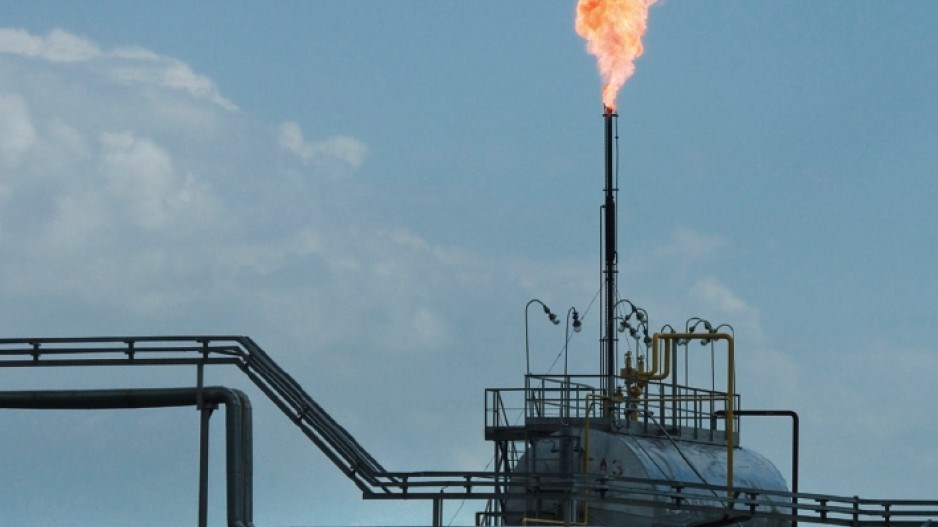Premier Christy Clark has promised to balance the provincial budget using $100 billion in revenue from B.C.'s liquefied natural gas industry.
But can her newly re-elected government balance the fiscal books without incurring a greenhouse gas deficit?
To answer that question, B.C. needs a carbon budget, similar to the one adopted by the U.K., says Andrew Gage, a lawyer with West Coast Environmental Law.
"We have targets, but we have no mechanism to plan for how we're going to achieve them," Gage said. "When you're doing something as complicated as this, you can't just throw out programs and hope it's going to work."
In 2007, B.C.'s Climate Action Plan set a greenhouse gas (GHG) reduction target of 33% by 2020 and 80% by 2050. The plan included a carbon tax and a cap on power production that requires 93% of the province's electricity to come from clean, renewable energy. In 2010, GHGs in B.C. decreased 4.5% from 2007 levels.
But Clark's government has been sending mixed signals. Clark said during the recent election campaign that B.C. needs Site C dam to help power the LNG sector – even though the dam, if built, would not start producing electricity until about 2022, four years after the first LNG plant is expected to go into production.
Moreover, her government has said it would exempt natural gas burned in the liquefaction process from the 93% clean power cap – thereby breaking its own rules on carbon emissions.
"There's a hypocrisy in saying we have these targets, if we're doing things that are going to make them impossible to achieve – or possible, but only through a lot of sacrifice by other sectors," Gage said.
"The carbon budget prevents you from robbing Peter to pay Paul, to a certain degree."
Matt Horne, director of the Pembina Institute's climate change program, said B.C.'s Climate Action Plan could be considered a carbon budget of sorts, or the start of one. He just doesn't think an LNG industry can be developed and still meet the province's GHG reduction targets.
He calculates that, even if only two LNG plants are built in B.C., they would produce one-third the GHGs of the Alberta oilsands.
"We do have a carbon budget, with the targets we've set for 2016, 2020 and 2050," Horne said.
"I don't see any way the province can meet those targets and develop a significant LNG industry. There are too many emissions from burning all that gas."
Proposed Prince Rupert LNG plant a voracious gas consumer
BG Group has proposed an LNG plant in Prince Rupert that would consume as much natural gas as is currently produced in B.C.
Some of that gas would never be liquefied but would be burned to power the cooling and compression for liquefying the gas.
It would also burn gas to power generators, which would provide electricity for everything else.
The plant would be tied into BC Hydro's grid, and the company states: "If reliable and sufficient, grid electrical power will be used in preference to site-generated electrical power."
Renewable energy producers are hoping that will provide them with an opportunity to supply at least some of the LNG industry's massive power needs.
LNG's global role in reducing GHGs
It has been argued that natural gas and liquefied natural gas can play a key stopgap role in reducing greenhouse gases, if it's used to replace coal in generating electricity. According to the Environmental Protection Agency (EPA) Greenhouse gas emissions in the U.S. decreased 6.9% between 2005 and 2011 and by 1.6% between 2010 and 2011. The EPA attributes those reductions, in part, to thermal power plants switching from coal to cleaner-burning natural gas.
Donald McInnes, vice-chairman of Clean Energy BC, believes an LNG industry could help other countries lower their own emissions while helping to grow the renewable energy sector.
"Any LNG that we export is going to reduce the amount of probable coal-fired power in Asian countries. Therefore, I think, on a global perspective, it's a win-win."
Clean Energy BC and the Canadian Wind Energy Association are hoping an LNG industry could be a catalyst for more renewable energy projects, like wind power. That would require the Liberal government to issue a new clean energy call, something that has been questioned by the Wilderness Committee, which is concerned about the impact of run-of-river projects on fish.




